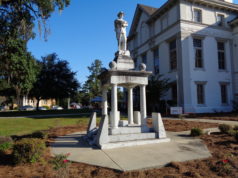About 150 people turned up at the Plaza Hotel’s Conference Center in Longmont last Monday to try to browbeat the Boulder County commissioners into banning oil and gas drilling in Boulder County.
Chances are most of them drove to the meeting. In cars fueled by something that came out of an oil well.
It’s a near certainty that they drove to the meeting because — apart from the fact that a lot of them live in other parts of Boulder County — the Plaza Hotel is located in one of the least pedestrian-friendly parts of Longmont. The nearest residential neighborhoods are a mile or more away, the hotel is located on or near some of the city’s busiest and noisiest streets, and the sidewalk situation in the area is dicey. (And the weather on Monday was cold, windy and wet.) About the only practical way to get to the Conference Center, even on a nice day, is to drive there.
Still, there is something kind of hypocritical about driving to a public meeting in order to demand a halt to the activity that made it possible for you to drive to the meeting.
But so what? It can’t be helped.
Every city in Boulder County is designed around the automobile, with most workplaces, shopping areas, restaurants, bars and public buildings separated by design and by zoning from where most people live — and sufficiently spread out from each other that the only practical way for the overwhelming majority of people to live and work in such cities is to drive a car.
And we like it that way. We have spent a century and trillions of dollars building auto-centric cities and turning the U.S. into an auto-centric country. Like it or not, and most Americans like it, the American way of life and American civilization as we know it is dependent on the automobile. And the automobile is dependent on gasoline and diesel fuel.
And that is as true in Boulder County is as it in Los Angeles.
The reason 150 people would drive to a meeting to protest the activity that made it possible to drive to the meeting is that driving is the only practical way for most of them to get there. If that’s hypocritical, make the most of it.
But the hypocrisy is beside the point. The real point is that even people who want to ban oil and gas drilling can’t live without it.
The purpose of the Monday meeting was to take testimony on whether or not Boulder County should extend its two-year-old moratorium on oil and gas drilling, which is due to expire on January 1. (The moratorium is on oil and gas production, not fracking.)
But many of the people at the meeting demanded that the commissioners go beyond the moratorium (a temporary ban) and permanently ban oil and gas production.
State law prevents the commissioners from doing that, a point even the Boulder County Community Rights Network, the local anti-drilling organization that evidently turned out much of the attendance at the hearing, seems to concede on its website. The group thinks Boulder County can get around the state if it turns itself into a home rule county and writes a charter that gives it the power to impose a ban. To that end, the group was circulating petitions to force an election on home rule. It needs about 13,000 signatures to put the issue on the ballot.
The idea verges on the delusional.
It isn’t just that state law preempts local government from banning drilling. It’s that both the U.S. and Colorado constitutions prevent government from taking private property (like mineral rights) for public use without compensation — and a government decision that denies a citizen (or a company) all uses of his property (like banning him from producing the oil on his land) constitutes a taking. A county’s home rule charter won’t trump constitutional protections that limit government power. A county charter can no more ban drilling than it can ban abortion.
The real question both the commissioners and the people of Boulder County should reflect on isn’t a legal one or even an environmental one, but a moral one: Inasmuch as an adequate supply of petroleum is necessary to sustain Boulder County’s way of life — and for the continued survival of the United States — is it moral to ban oil and gas production in Boulder County while continuing to live an oil-dependent lifestyle?
Is it moral to live a petroleum dependent lifestyle and not share some of the environmental burden associated with producing that petroleum — especially when experience has shown that that burden is not particularly great and that most of the impacts are transient?
And is it moral to cut off domestic petroleum production before energy alternatives are available — especially when such a cut off will require the United States to import petroleum from hostile nations and possibly go to war to protect the oil supply?
I think the answers to those questions are pretty self-evident, and that the folks demanding a ban on drilling oil and gas production are acting immorally. The Boulder County Commissioners should not do the same.
Respond: [email protected]
This opinion column does not necessarily reflect the views of Boulder Weekly.














